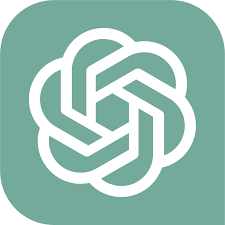

Everywhere you turn these days professors are talking about how to handle students who use ChatGPT to write their papers. Over at The Washington Post, historian Jonathan Zimmerman explains why he doesn’t have a policy on the matter.
Here is a taste:
With the new semester upon us, I recently received an email from my university encouraging me to come up with a “policy” about the use of artificial intelligence in my courses. The university suggested that on the first day of class, instructors should inform students whether and how they can employ AI bots such as ChatGPT.
So here’s my AI policy: I don’t have one.
Here’s what I’m going to tell my students instead.
Of course, you’ll have to notify me if you draw upon AI to write a paper, just as you are required to cite any other source. But whether to use AI or not is up to you.
Though, I hope you won’t.
I’m not saying that because AI can make up phony “facts” (although it can) or because it can generate racist and hateful text (ditto). I say this because AI does your thinking for you. There’s a reason it’s called “intelligence,” after all.
And I want you to be intelligent. I want you to stare at a blank page or screen for hours, trying to decide how to start. I want to you to write draft after draft and develop a stronger version of your own ideas. I want you to be proud of what you accomplished, not ashamed that you cut corners.
Most of all, I want you to decide what is real. One of my mentors, Neil Postman, a professor and social critic, famously declared that education should equip us with an effective “crap detector.” And Postman wrote that years before we all got access to the internet, which has made BS detection even more difficult — and even more crucial.
Sometimes BS is just lies — what today we call “disinformation.” More commonly, though, it is an indifference to truth rather than a deliberate flouting of it. Liars believe in truth; they couldn’t lie unless they did. People who peddle BS don’t care either way. In that sense, as Princeton University philosopher Harry Frankfurt wrote, BS is “a greater enemy of the truth than lies are.”
So here’s my question: Do you want to live your life this way? If so, AI bots are definitely for you. Let them write your essays, do your problem sets, draw your artwork, compose your poetry. As they get better, outpacing the systems designed to detect them, you’re less and less likely to get caught. And you might even ace your classes.
Read the rest here.
Though I cannot claim Neil Postman as a mentor, I’m pretty much on the same page as Zimmerman. You really have to decide whether you want credit in order to get a credential or a genuine education–which will determine whether you control the machines or the machines control you.
But in addition to this lofty exhortation, I have made a change to an introductory ethics course. Still a final paper required, but instead of writing it down and turning it in students will sit down with me and give me the argument. If we can make it work, I’ll have a better shot at actually assessing people’s learning and thinking. We’ll see.